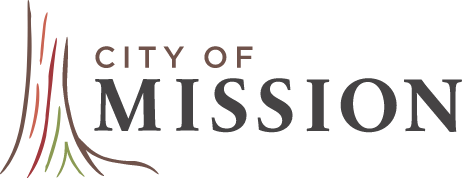Territory Acknowledgement
This place is situated on the unceded, ancestral, and shared territory of the Stó:lō people, who have occupied these lands since time immemorial. The City of Mission is located on Leq’á:mel, Semá:th, Kwantlen, Sq’éwlets, Máthexwi, and Katzie traditional territories.
The traditional language spoken by Stó:lō people is Halq’eméylem. Learn more about the First Nations whose territory Mission is located by visiting their websites:
Reconciliation
The City of Mission is committed to reconciliation with First Nations communities and peoples and will work to ensure that its activities, initiatives, and partnerships reflect the intent of the United Nations Declaration on the Rights of Indigenous People (UNDRIP), and the Truth and Reconciliation Commission’s (TRC) Calls to Action.
The City is starting with the adoption of a set of principles that will guide its relationships with Indigenous peoples and commits to the revision and creation of policies to be consistent with UNDRIP and the TRC Calls to Action.
The following showcases a portion of the Indigenous Relations initiatives as the municipality moves toward becoming a City of Reconciliation.
Principles of Reconciliation
On April 19, 2021, Council adopted the 9 principles of Reconciliation, as Mission moves forward to becoming a City of Reconciliation.
Since 2016, when Canada officially endorsed the United Nations Declaration of Indigenous Peoples (UNDRIP), the federal government has continually attempted to improve relations with first nations peoples. Subsequently, in 2019, the province of British Columbia officially adopted legislation affirming the commitment to incorporation UNDRIP into legislation; the Declaration on the Rights of Indigenous Peoples Act (DRIPA) Bill 41, was passed.
These 9 principles will help the City gain a better understanding of how to engage and build relationships with local First Nations communities and commit to treating them as neighbours, peers, and partners within a shared or overlapping territory.
The Principles
- Reconciliation occurs through the development of government to government relationships based on the recognition of indigenous rights.
- Local governments are crucial to the implementation of UNDRIP and the TRC calls to action. Advancement of this work can occur while recognizing the sovereign to sovereign (or Crown to Nation) relationships that occur between Federal, Provincial and First Nations governments.
- Plans and strategies for the implementation of UNDRIP and the TRC Calls to Action will be ‘co-created’ with First Nations communities, namely Matsqui, Sema:th, Kwantlen, Katzie, Sq’ewlets, and Leq’a:mel through engagement and collaboration, including ‘Reconciliation Dialogues’ and ‘Community to Community Forums’.
- Reconciliation promotes a mutually supportive climate for economic partnerships with regional First Nations communities.
- Collaboration with First Nation communities will define how best to communicate and engage on economic and land development policy.
- Continuous learning about indigenous peoples, cultural, traditions and laws is a requirement of reconciliation.
- Cooperation and collaboration will guide the City’s approach to issues that impact First Nations.
- Relationships take time, as does exploring what mutual commitment to reconciliation means; we will endeavour to engage our neighbouring First Nation communities to build those relationships around shared interests and common concerns.
- Systemic racism exists and that there are many ways of understanding the world and ways in which societies create and implement laws and that valid laws existed here before Canada. The City will question assumptions and remain open when faced with different legal traditions and ways of knowing.
Education
- United Nations Declaration on the Rights of Indigenous People [PDF/166KB]
- Declaration on the Rights of Indigenous Peoples Act
- Truth and Reconciliation Commission Report
- Bill 41: Declaration on the Rights of Indigenous Peoples Act
- Siwal Si’wes Library
- The Residential School System – UBC
- Truth and Reconciliation Commission of Canada

